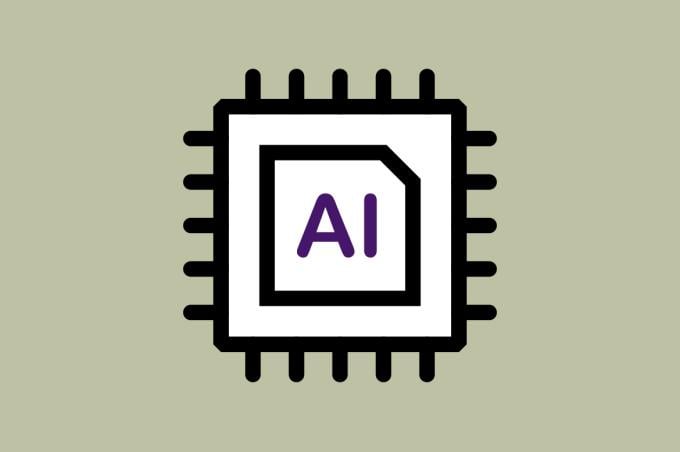The eyes have been described as the “gateway to the soul,” but David Kerr, MD, believes they can be the gateway to the brain, heart, kidneys and many other organs as well.
Dr. Kerr is a senior investigator at Sutter’s Center for Health Systems Research, where he studies the role of digital health in diabetes care.
Last year, Sutter Health completed a six-site, three-month pilot project where they used cameras enhanced by augmented intelligence (AI)—often called artificial intelligence—to conveniently screen patients with diabetes for diabetic retinopathy during regularly scheduled primary care visits.
Sutter Health is part of the AMA Health System Member Program, which provides enterprise solutions to equip leadership, physicians and care teams with resources to help drive the future of medicine.
The AI tool that Sutter Health implemented was able to detect signs of retinopathy in less than a minute and patients were able to undergo screening without pupil dilation so they could leave right after the exam, instead of having to wait four hours or more for their eyes to return to their normal condition. This tool has been approved by the U.S. Food and Drug Administration. Across the U.S., rates of retinal screening among adults and children are sub-optimal, putting these individuals at risk of losing their vision. The idea behind this project was to make it easier for people living with diabetes to have their eyes checked annually, as recommended by the American Diabetes Association.
Out of the 216 exams performed, 24 patients showed some degree of retinopathy, 15 had their condition listed as “sight threatening,” and nine were listed as having a problem that was “more than mild.”
All were referred to an ophthalmologist for follow up.
Sutter Health has since rolled out the cameras to 28 primary care offices, and Dr. Kerr believes the technology can be used to detect other conditions as well.
“The AI-derived retinal image gives us insight into other organs that may be at risk from diabetes complications such as the heart and the kidney,” he said. “It's providing images of blood vessels and nerves, which might be the place where we can detect diseases much earlier before they affect the heart, kidney or brain.”
Dr. Kerr and colleagues elaborated on this point in an article published last November in the Journal of Diabetes Science and Technology.
AI “is the foundation of emerging medical technologies; it will power the future of diagnosing diabetes complications,” Dr. Kerr and co-authors wrote.
Physicians’ use of health care AI for certain tasks nearly doubled in 2024, and enthusiasm for the technology is growing even if some doubts still linger, according to an AMA survey (PDF).
How AI can reduce complication risk for people living with diabetes
“Diabetes is a very serious and common chronic metabolic disease associated with very bad long-term complications,” Dr. Kerr said.
Dr. Kerr believes AI can be used to predict who is at greatest risk from developing diabetes in the first place and, for those living with the disease, determine who is at greatest risk of developing complications. Assessing risk early in the natural history of a disease provides opportunities to create acceptable, cost-effective and evidence-based interventions to substantially reduce those risks. Increasingly these interventions will be focused on facilitating behavior change and enhancing an individual’s self-efficacy.
“What we're seeing is that the exponential growth in the application of AI is opening up new ways to support people living with diabetes,” Dr. Kerr said. “That is one of many potential benefits from AI,” he said.
“We're at the beginning of a revolution in diabetes care based on artificial intelligence,” Dr. Kerr said. “AI allows us to look at populations but decide on interventions that reflect the uniqueness of an individual—and this is very exciting.”
While he acknowledges that “most diabetes care currently revolves around the prescription of medicines,” Dr. Kerr said AI may be able to maximize the return on the investment from nonpharmaceutical interventions. In the near future, we are likely to see AI provide much more personalized guidance such as what to choose for breakfast and when is the best time of the day to take that walk to help keep blood glucose levels within a target range.
“From a drug perspective, we’ll be able to predict whether this particular drug or class of drug is more effective or less effective in an individual,” he added. “And then what about combinations of drugs? If we apply drug A plus drug B together, will you get an even better result?”
The AMA supports the development of high-quality, clinically validated AI that is deployed in a responsible, ethical and transparent manner with patient safety being the first and foremost concern.
Revolutionizing diabetes care
“If you stand back and look at populations over the past two decades, have we managed to reduce the rates of diabetes? No, we haven't,” he said. “So there's no point carrying on doing the same thing.”
While calling for bold change, Dr. Kerr also noted that Sutter Health is taking a deliberate, responsible approach to AI—supported by a cross-functional governance structure that brings together clinical and operational experts from across the organization. Each use of AI is carefully vetted to prioritize patient safety, protect privacy, ensure accuracy, and maintain transparency—especially when AI plays a role in direct care.
Another key question physicians have is: Can AI fit into my workflow?
Dr. Kerr said Sutter Health’s pilot putting an AI-enhanced camera into primary care offices showed that it can be done.
“With diabetic eye disease, if it's not diagnosed, it can lead to loss of vision and blindness,” he said. “If one waits until a patient reports symptoms, it means that the disease has usually progressed. What we need to do is go looking for the disease.”
The technology is being used at 28 sites and continues to grow. Now, Dr. Kerr said, the key is to use the information that screening provides.
That means closing the loop and ensuring that the patients whose screening detected disease have an appointment made with a specialist, that they make it to the appointment, and that they receive timely and appropriate treatment.
The American Academy of Ophthalmology has noted that screening alone does not result in improved patient outcomes and that assessments of a screening program’s impact should also include how many people were referred and examined by an ophthalmologist and received the needed treatment.
“That's the next phase of this exercise,” Dr. Kerr said. “The idea is to expand across the whole of Sutter Health, which has under its care has almost 1% of America, 3.5 million patients.”
While Dr. Kerr’s work highlights the potential for AI to transform specific areas of care, it’s part of a larger effort to thoughtfully scale these technologies across the system, an effort now being led by internist and cardiologist Ashley Beecy, MD, who joined Sutter Health at the end of May as its chief AI officer. In this role, she oversees the health system’s strategy to drive innovation through AI and advanced analytics to help improve outcomes for patients, support clinicians and strengthen operations, a news release said.
Learn about the emerging landscape of health care AI. Also, explore how to apply AI to transform health care with the “AMA ChangeMedEd® Artificial Intelligence in Health Care Series.”





